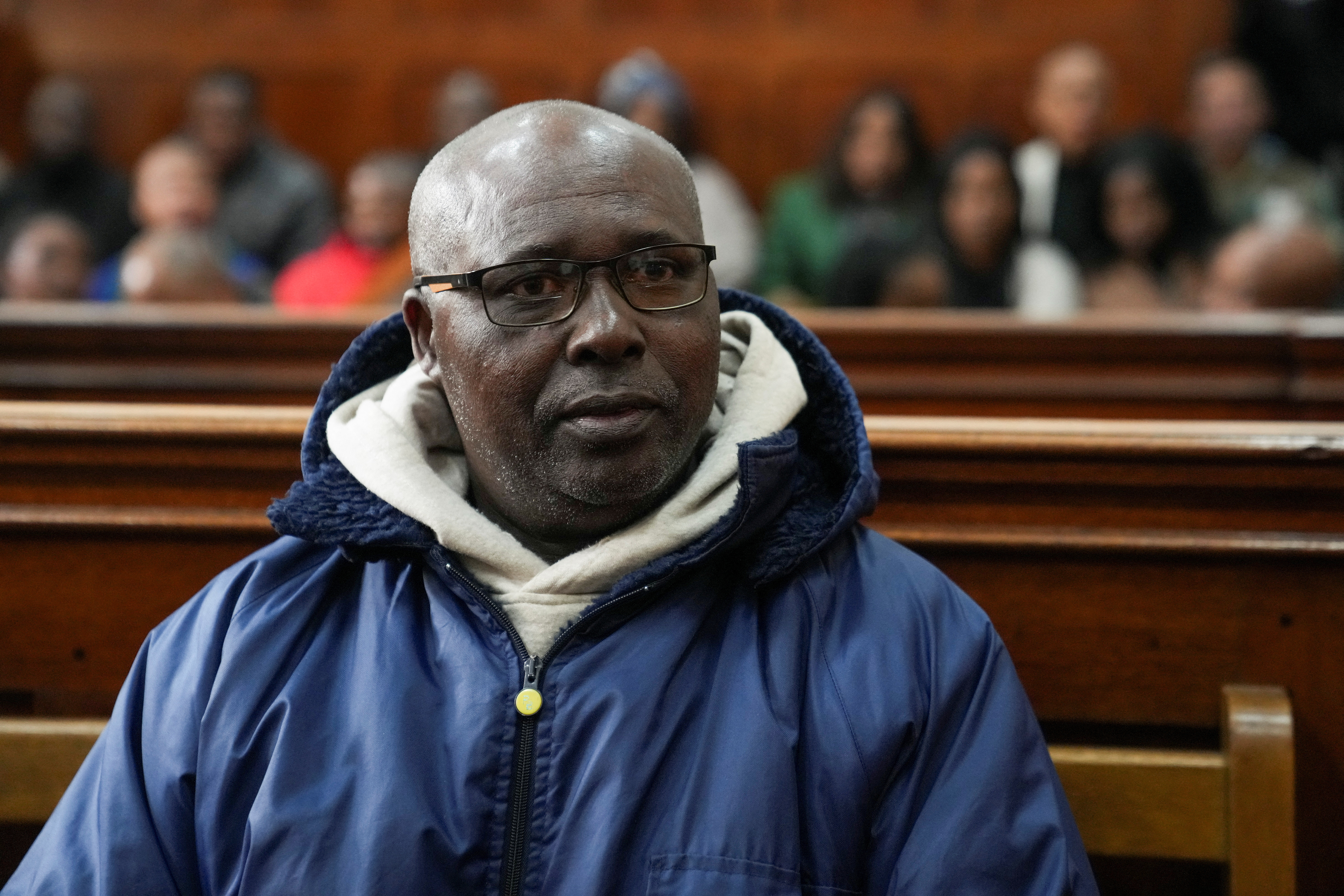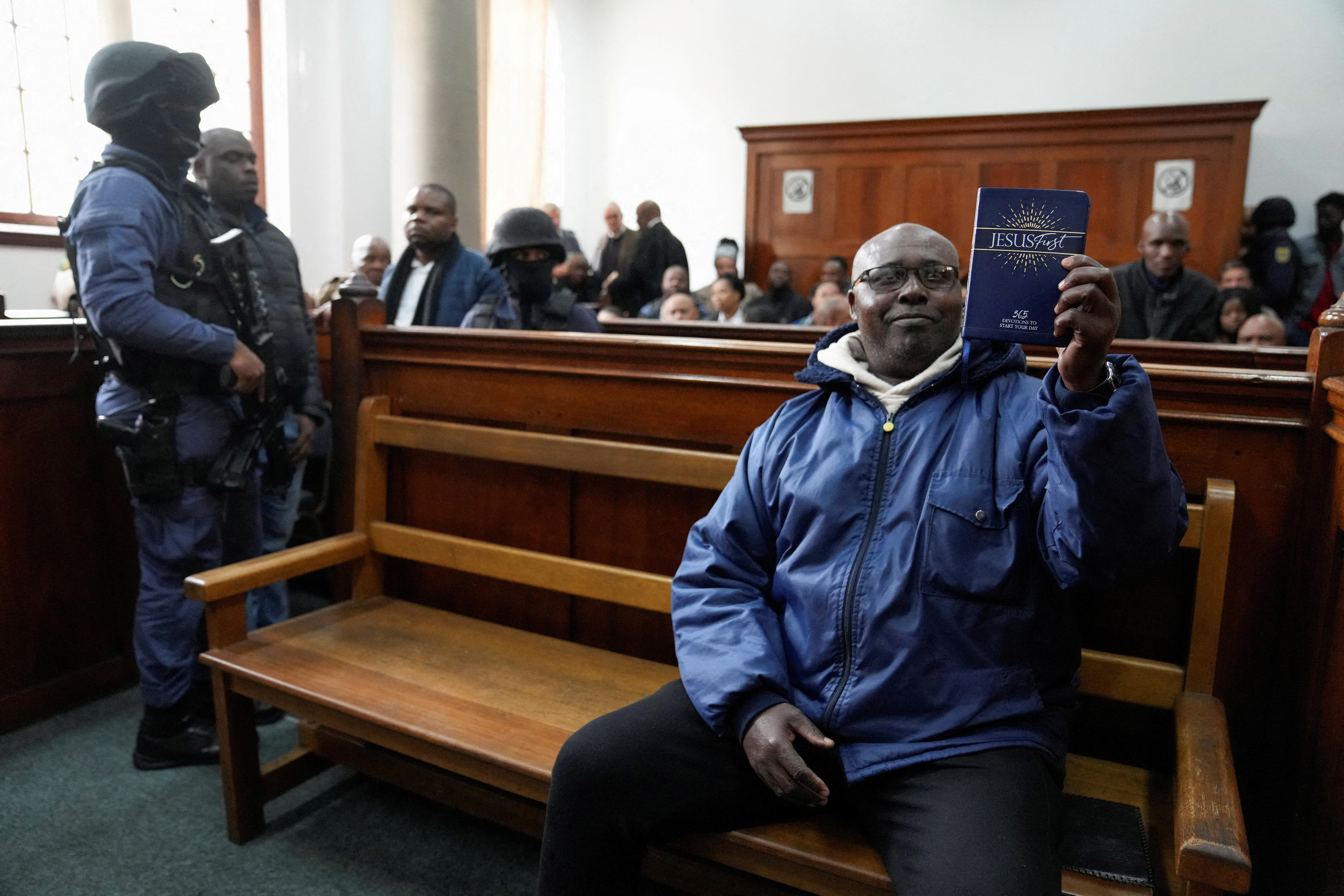
Fulgence Kayishema, one of the most wanted remaining fugitives of the Rwandan genocide, has appeared before a court in the South African city of Cape Town following his arrest this week after 22 years on the run.
Kayishema is accused of taking part in the killing of 2,000 people sheltering inside a Catholic church in one of the 1994 Rwandan genocide’s bloodiest episodes.
He was arrested on Wednesday under the false name of Donatien Nibashumba on a grape farm in Paarl, 60km (35 miles) north of Cape Town.
South African police said the arrest was made in response to an Interpol red notice. Red notices go out to law enforcement agencies around the world. They seek the location and arrest of fugitives wanted for prosecution or to serve prison sentences.
Entering court on Friday for an initial hearing with a Bible and book emblazoned with “Jesus First”, the 62-year-old was asked by a journalist if he had anything to say to victims.
“What can I say? We are sorry to hear what was happening,” he responded after coming up from holding cells at Cape Town Magistrates’ Court. “It was a war at that time. … I didn’t have any role.”

In his brief court appearance, Kayishema was accompanied by masked police officers with automatic weapons and bullet-resistant vests. The National Prosecuting Authority (NPA) said the case was postponed to June 2 to allow it time for further investigation.
“While he was being arrested, more information came, which could mean us adding more charges,” NPA provincial spokesperson Eric Ntabazalila told journalists, saying prosecutors would oppose bail should he seek it.
Kayishema will be held at Cape Town’s Pollsmoor Prison ahead of extradition to Rwanda.
“This appears to be just the start of a longer process for justice for many people who suffered during the Rwandan genocide,” said Al Jazeera’s Fahmida Miller, reporting from Cape Town.
Gatete Ruhumuliza, a Rwandan lawyer and political analyst, described Kayishema as an “important” figure among genocide perpetrators.
“What Kayishema did … is he broke the first taboo, which was killing people seeking shelter in a church. That was unheard of,” Ruhumuliza told Al Jazeera from Rwanda’s capital, Kigali.
“Subsequent killings followed that pattern … because many Tutsis who were killed took shelter [in a church] thinking no one would dare cross that barrier.”
Kayishema had been a fugitive from justice since 2001 when the International Criminal Tribunal for Rwanda (ICTR) indicted him for genocide over his alleged role in the destruction of the Nyange Catholic Church in Kibuye prefecture.
More than 800,000 Rwandans, most from the Tutsi ethnic group, were killed during 100 days of violence by forces and vigilantes from the Hutu ethnic group. Thousands of moderate Hutus were also killed in the violence, considered one of the worst atrocities of the 20th century.
At the Nyange church, Hutu militia lobbed grenades then doused it with fuel to set it ablaze. When that failed, they knocked down the church with bulldozers, and most of those hiding inside died.
Kayishema faces five charges in South Africa, including two of fraud related to applications he made for asylum and refugee status. The NPA alleges he gave his nationality as Burundian and used a false name.
Serge Brammertz, chief prosecutor of the International Residual Mechanism for Criminal Tribunals, the successor of the ICTR, told the BBC that Kayishema had fled Rwanda after the genocide and hid among refugees.
“First, he went to the DRC [Democratic Republic of the Congo] for a number of months. Then he went to a refugee camp in Tanzania. From there, he moved to Mozambique. Then two years later to eSwatini, and then in the late 90s, he ended up in South Africa,” Brammertz said.
The prosecution persuaded a small number of former Rwandan soldiers with false identities living in South Africa as refugees to provide information on Kayishema’s whereabouts, he said.







